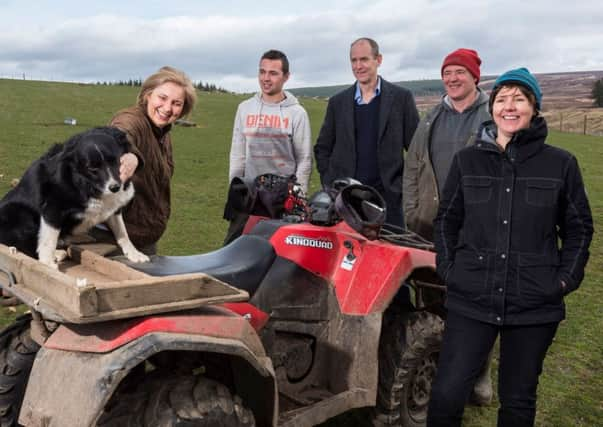Amanda Bryan: valuing the environment is vital


They believe that the public interest must be protected from commercial instincts which, unrestrained, will damage the environment and threaten the future of communities.
To some extent they are right. There is enough evidence from around the world for us to recognise the need to control the actions of businesses which behave irresponsibly. And yet, there is also growing evidence – from Deloitte and Harvard Business School among others – that businesses managed responsibly and sustainably are more successful in the long term.
Advertisement
Hide AdAdvertisement
Hide AdI should say at this point that Crown Estate Scotland is not an ordinary property management business. Like all businesses we need to make a profit. However, in our case, the profits go to Scottish Ministers, to whom we are ultimately accountable, for them to use for public spending.
Nonetheless, like many other property businesses our success depends on our commercial acumen and our ability to manage our assets in a way that protects and enhances their long-term value.
For me, what marks us out as a good business is not what we do but how we do it. We look for long-term growth, with a strong focus on sustainability – not just environmental sustainability, but also social and economic sustainability.
Commercial interests and nature are sometimes seen as in opposition, with environmental concerns being viewed as an unwelcome barrier to both commercial success and economic growth.
However, these attitudes are changing with more understanding of how business relies on natural capital and how changes in our environment, for example climate change, impact markets.
This is an important issue for us as we are responsible for many of Scotland’s most precious natural assets including the seabed, around half the foreshore and four rural estates with 14 Sites of Special Scientific Interest. While these assets offer significant commercial opportunities, they are often environmentally sensitive with fragile ecosystems.
Valuing and safeguarding the environment is vitally important to the long-term interests of those who earn a living from the land and sea. You only need to look at the natural flood defences provided by forests or crop pollination by insects to see how businesses routinely depend on protecting the environment.
Similarly, the social and economic sustainability of the communities where we work is important for our commercial success. For our tenants and customers in rural and coastal areas, the success of their businesses both contributes to, and depends on, the economic and social health of their local communities.
Advertisement
Hide AdAdvertisement
Hide AdFor a business in a rural or remote coastal setting to thrive, employees need local schools, good quality community facilities, the right infrastructure and so on.
And we know that our success, the fortunes of our customers and tenants and the prosperity of the places they operate in, are all mutually interdependent.
That is why we support projects such as the Glenlivet & Tomintoul Landscape Partnership Project which is delivering regeneration initiatives in Moray, which strengthen the social and economic well-being of the communities where we work.
I do not want to imply that there are not difficult decisions to be made or that economic/financial, environmental and social considerations will always be in harmony. They are often not. For example, we know that agriculture, forestry and game management contribute significantly to the rural economy – but they also need to be managed carefully.
Resolving these issues relies on effective communication and Crown Estate Scotland will be engaging openly with partners and the wider public.
Responsible business practice involves being willing to listen and recognising that commercial success, if it is to be sustainable, often requires carefully balancing different interests and concerns. By working with our many partners and customers on these challenges, I have no doubt that Crown Estate Scotland will offer real benefits to Scotland and its communities.
Amanda Bryan is chair of Crown Estate Scotland.